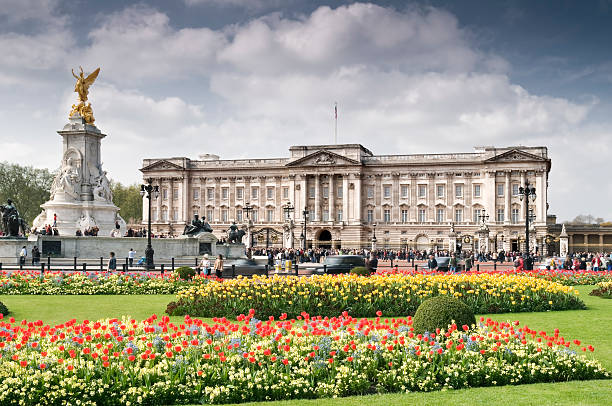
On the 7th February, I posted a blog entitled ‘The Thieving British” (which was subsequently carried in Public Opinion).
In the article, I expressed shock at the story on BBC which exposed Britain’s audacity in loaning treasures it had stolen from Ghana to a museum there.
The artifacts had been stolen by Britain in 1874.
In April 2023, several media houses in Britain carried reports to the effect that King Charles III of England supports a study into the British royal family’s links to slavery. According to a section of the story, this is part of a series of stories on royal wealth and finances, as well as the monarchy’s connection to slavery.
Interestingly, in his recent memoir Spare, Prince Harry wrote that; “The monarchy rests upon wealth generated by exploited workers and thuggery, annexation, and enslaved people.”
The new study, which Charles has okayed, is supposed to be complete by 2026.
While some will consider this a well-intentioned move, does it really go far enough, or should the research into Britain’s thuggery, annexation and exploitation cover not only slavery but also colonialism, since it all happened in one fell swoop without any significant break?
(Remember, in 1874 when they were still stealing artifacts from Ghana and others, slavery was supposed to have been already abolished by Britain.)
This upcoming report on the royals’ enrichment will clearly not cover both atrocious periods therefore.
I am, however, hoping that those who are negotiating for reparations on behalf of Africa and the Caribbean don’t take a similarly half-hearted approach.
Take the glorious Industrial Revolutionthat propelled Britain economicallyand still allows it to be held in high esteem and keeps it as somewhat of an economic powerhouse today. The story below, published by the British Guardian, newspaper on the 5th July 2023, exposes the myth about the British technological prowess.
The headline of this story was; ‘Industrial Revolution iron method was taken from Jamaica by Briton.’The sub-headline was; ‘Wrought iron process that drove UK success was appropriated from black metallurgists, records suggest’.
It said in part; “An innovation that propelled Britain to become the world’s leading iron exporter during the Industrial Revolution was appropriated from an 18th-century Jamaican foundry, historical records suggest. The ‘Cort’ process, which allowed wrought iron to be mass-produced from scrap iron for the first time, has long been attributed to the British financier turned ironmaster Henry Cort. It helped launch Britain as an economic superpower and transformed the face of the country with “iron palaces”, including Crystal Palace, Kew Gardens’ Temperate House and the arches at St Pancras train station. Now, an analysis of correspondence, shipping records and contemporary newspaper reports reveals the innovation was first developed by 76 black Jamaican metallurgists at an ironworks near Morant Bay, Jamaica. Many of these metalworkers were enslaved people trafficked from west and central Africa, which had thriving iron-working industries at the time.”
Dr Jenny Bulstrode, a lecturer in history of science and technology at University College London (UCL) and author of the paper, said: ‘This innovation kicks off Britain as a major iron producer and … was one of the most important innovations in the making of the modern world.’ The technique was patented by Cort in the 1780s and he is widely credited as the inventor, with the Times lauding him as “father of the iron trade” after his death. The latest research presents a different narrative, suggesting Cort shipped his machinery – and the fully fledged innovation – to Portsmouth from a Jamaican foundry that was forcibly shut down.
The Jamaican ironworks was owned by a white enslaver, John Reeder, who in correspondence described himself as “quite ignorant” of iron manufacturing, noting that the 76 black metallurgists who ran the foundry were “perfect in every branch of the iron manufactory”, and, through their skill, could turn scrap and poor-quality metal into valuable wrought iron.”
Charles can make mealy-mouthed apologies for slavery, but will the exploited ever be compensated for how his empire and its descendants have lived and prospered from the brain and brawn of our ancestors from slavery through to the end of colonialism?
Prince Harry of the British Royal tribe is the only one who got it right. But will his brother, who is the only one who can determine that the descendants of the exploited receive any form of justice, make it right?
Do not hold your collective breaths.



